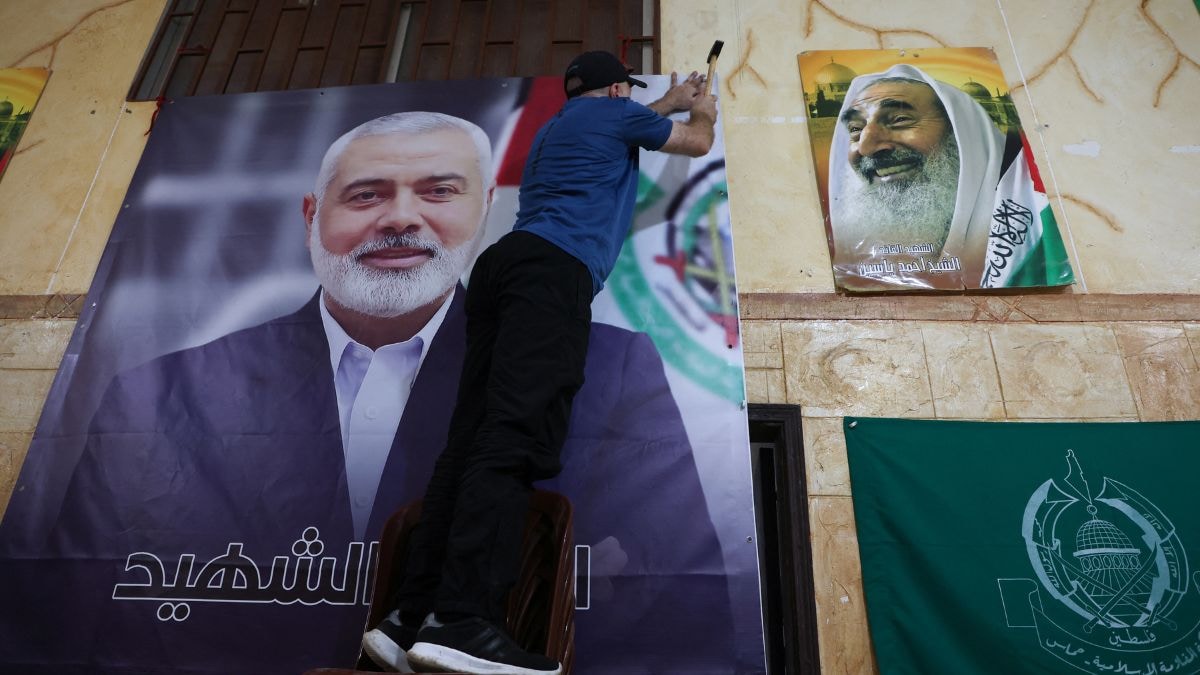The death of Haniyeh, a significant figure in Hamas’s political and diplomatic structure, has raised serious questions about the future of ongoing ceasefire negotiations. American officials had recently indicated that these talks, mediated by Qatar, the United States, and Egypt, were close to yielding a temporary ceasefire and a potential hostage release deal.
However, the assassination has cast doubt on the feasibility of these efforts moving forward.



Removed by mod
It is notoriously hard to find non-radicalized folks after repeatedly dropping bombs on their homes.
If that was genuinely Isreal’s aim they would be limiting their intervention to targeted strikes or utilizing the Palestinian social apparatus to try and secure custody of the most extreme Hamas members… they’d also be rabidly going after any Isreali settlers threatening the peace process.
Genuinely trying to build a better civilian government (which is something I’m absolutely supportive of) looks a lot different than what we’ve been seeing.
IMO Netanyahu and most of his party don’t really care if Palestinians live or die - they just want to make Gaza so inhospitable that they all flee as refugees so that Isreal can freely claim the land. With some very notable exceptions I think the preference is that no Palestinians die so that it doesn’t look as bad on the international stage… though a few fucks literally want blood.
Israel realized that it’s better to control gaza from the outside with the blockade
The blockade was instituted in response to the Gazans electing Hamas in free and fair, internationally monitored democratic elections, and then beginning to fire rockets at Israel, to try and reduce their ability to import weapons or components which could be used to create weapons.
There didn’t even used to be a wall. Before Hamas, you could just drive from Tel Aviv to the beaches of Gaza and back with no checkpoints.
A lot of Palestinians miss those days. I’m pretty sure most Israelis do, too.
Gaza has restrictions from israel since 1967. The more tight restrictions get, the more hate there will be feom the affected people.
Sure. So what? For the next 10 years it averaged nearly 10% GDP growth per year.
I think this rests on a fundamental misunderstanding of the conditions in Gaza pre-October 7th.
Gaza was pretty wealthy. The average income exceeded that of their neighbouring Egyptians. Yes there were difficulties importing some goods or products, but it was rarely impossible for consumer goods. Plus, in the end, they (as we now know) had miles of smuggling tunnels.
That’s one reason why Egypt started squealing when Israel began to move into Rafah. There were minimal civilian casualties, but the IDF discovered the vast tunnels, some big enough to move a tank through, between Rafah and Egypt.
The idea that everyone was sort of sitting around in tents and mud is nonsense.
They also received billions of dollars in international aid, which Hamas of course simply spent building weapons and terror dungeons. But many Gazans went to work in Israel, many went to university abroad, built decent lives. All undone because of Hamas, tragically.
Watch this tourism video by a Gazan from 2019. Does this look like a Warsaw Ghetto to you?
https://www.youtube.com/watch?v=JBo7i-TXy6s
Yes times could be tough. But times are often tough all around the world. Ask the Sudanese or the Ethiopians. They’ve got average incomes multiple times lower than the Gazans did. They didn’t launch genocidal wars or broadcast TV shows for children calling for beheading al-Yahud.
Removed by mod
Removed, civility.
Perfectly apt response for a person that thinks economic growth = right to invasion. But rules are rules so I understand.